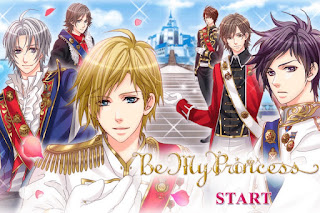Yay or Nay?: Next Year in Havana (Novel)
Sorry everyone for the lack of posting again! It's been a rather busy 3 weeks for me as I've had my cousin visiting, and have been job hunting like crazy before I apply for a Ph.D. and Olga is currently in Italy, and from what I've been hearing, having a blast, so I can't wait until she gets back and can tell me stories! So, in the name of travel, I'll be reviewing Chanel Cleeton's Next Year in Havana, a book which Olga gave to me when I passed my thesis at the end of August! Following next week with a raw list of reasons why one should not see Ad Astra (yes, that movie that's been called a masterpiece...but I digress). Regardless, this week we'll be looking at a book not just about travel-- but also history, and what it means to be within (and without) a national identity.
The Story
Next Year in Havana takes place from the perspective of 2 characters, the first, Eliza Perez, the daughter of a wealthy sugar-baron in Cuba during the time of hte Cuban Revolution, when Fidel Castro took power. She falls in love with one of Castro's revolutionaries, and their relationship is most challenged when notions of class, as well as politics and identity come into play. On the other hand, years later, this story tracks Eliza's granddaughter, Marisol Ferrera. Shortly after Eliza's death, Marisol returns to Cuba to honour her grandmother's last wish: to have her ashes spread in the home that she and her family were exiled from. However, she does not plan on meeting a handsome Cuban professor, or in discovering her grandmother's secret past, that there is more to being Cuban than she originally thought.
My Thoughts
Two things about this novel stand out to me-- the theme of identity and Cuban political history, both of which this book does both gracefully and accurately. It shows audiences the past, of how Cuba was and it's political state before and after Castro's reign. It shows why there was a revolution, and the stakes both upper and lower class citizens alike faced. More importantly, it shows how these events shaped Cuban identity, and even more so, the aftereffects of the Revolution and Castro in the present day, again both politically and in the Cuban identity.
And, one of Marisol's biggest issues in this story is the notion of identity. Growing up very privileged in Miami, Florida, she's always considered herself "Cuban" as her aunts and grandmother have raised her as such, waiting for their triumphant return to a Havana she's only known in stories. Once she arrives however, she realizes that she does not completely belong, and struggles with being both "within" and "without" the Cuban culture she thought she knew. Can she call herself Cuban? Can she call herself American? These are the questions, among others, that Marisol faces once she discovers her grandmother's elusive past, and when she meets Luis, a professor of history at the University of Havana.
Eliza's struggle as well, is more about class and politics than identity, although these become intertwined. She struggles with how she can fit into Pablo (a revolutionary's) world being the daughter of the insanely rich, those that have the ear of corrupt politicians. She struggles with how she can give her way of living up, to look politics straight in the eye, and create a better Cuba. Was the revolution right or wrong? Would it make their country that they both loved better? How can family and love survive through these trials-- these again, are among some of the many questions Eliza and Pablo's stories ask.
Finally, the last thing this book should be praised for again, is it's accuracy and knowledge of Cuban politics. You are plunging into a romance, but it also teaches a history that I, at least, was not familiar with, despite being only a little ovr fifty or sixty years ago. And, of course, a cast of likeable and real characters that actually develop and go through trials and tribulations that shape their identities and experiences. You will devour this book, I promise you, for it's characters, and it's romance stories, and it's political intrigue-- all which are loosely based on real accounts in Cleeton's family.
My Rating
So I absolutely loved this novel, and I think you will too. It starts off a little slow, but you will not be sorry for sticking with it.
My Rating: ⭐⭐⭐⭐⭐
Check it out! Give this a buy or a borrow!
~Meghan



Comments
Post a Comment